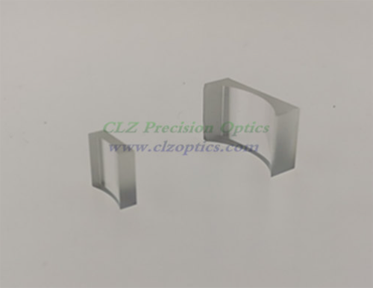Understanding the Power of Cylindrical Lenses and Spherical Lenses in Optics
In the fascinating world of optics, the utilization of various types of lenses plays a pivotal role in shaping our vision, literally and metaphorically. Two primary types of lenses that have garnered significant attention are Cylindrical Lenses and Spherical Lenses. In this article, we delve into the unique characteristics of these lenses, shedding light on their applications and importance in the field of optics.

Cylindrical Lenses: Shaping Light Precision
Cylindrical lenses are optical components that have a distinct curvature in only one direction, akin to a cylinder. This curvature allows them to focus or disperse light in a specific linear direction, making them invaluable in various optical systems.
Precision in Focus
One of the key strengths of cylindrical lenses lies in their ability to precisely focus light onto a line instead of a single point, as spherical lenses do. This unique characteristic finds applications in laser systems, barcode scanners, and optical data storage.
Correcting Astigmatism
Cylindrical lenses also come to the rescue in the correction of astigmatism, an optical condition that causes blurred vision due to irregular curvature of the eye's cornea or lens. Optometrists often use cylindrical lenses in eyeglasses to counteract astigmatism, providing clear and sharp vision.
Optical Tweezers
In the world of scientific research, cylindrical lenses are indispensable in the development of optical tweezers. These devices utilize the focused laser beam created by cylindrical lenses to manipulate and study microscopic particles, facilitating breakthroughs in various scientific fields.
Spherical Lenses: The Versatile Vision Correctors
On the other hand, spherical lenses are the more common and widely recognized optical components, owing to their ubiquitous presence in eyeglasses, cameras, and telescopes.
Simple yet Effective
Spherical lenses have a uniform curvature across their entire surface, which allows them to converge or diverge light to a single point. This fundamental property is harnessed in numerous applications, with the most prominent being vision correction.
Crystal-Clear Vision
In the realm of ophthalmology, spherical lenses take center stage. They are meticulously crafted to correct nearsightedness (myopia), farsightedness (hyperopia), and presbyopia. Millions around the world owe their crystal-clear vision to these remarkable lenses.
Precision Photography
For photography enthusiasts, spherical lenses are an indispensable tool for capturing stunning images. They help in focusing light onto the camera's sensor, ensuring that every detail is captured with precision and clarity.
In the world of optics, both cylindrical lenses and spherical lenses have carved out unique niches for themselves. While cylindrical lenses excel in precision focusing and correcting astigmatism, spherical lenses are the go-to solution for everyday vision correction and photography. These optical marvels continue to shape the way we perceive the world around us, reminding us of the boundless possibilities that the field of optics offers.
As you explore the realms of optics and vision, remember the vital roles played by cylindrical and spherical lenses, each contributing to a clearer and more focused perspective of the world.
评论
发表评论